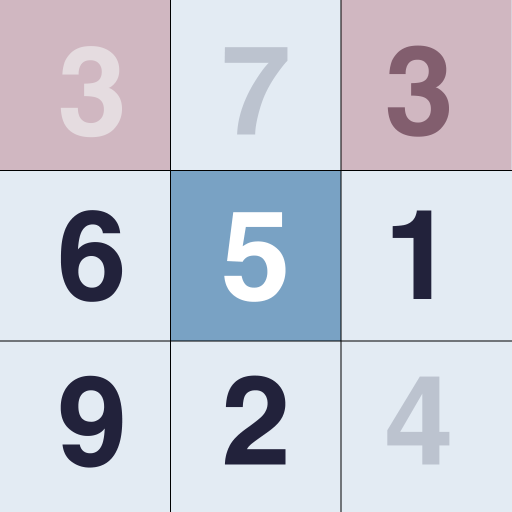
Sudoku and Mental Health: How Puzzles Can Help Reduce Stress and Anxiety
Sudoku puzzles have become a popular pastime for many people around the world. While they may seem like a simple game of logic, Sudoku puzzles can actually provide numerous benefits for mental health. In this article, we will explore the science behind Sudoku and mental health, as well as practical tips for using Sudoku to improve mental wellness. Whether you're a seasoned Sudoku solver or just starting out, this article will provide insights into how puzzles can benefit your overall well-being.
The Science Behind Sudoku and Mental Health
Research has shown that engaging in Sudoku puzzles can have numerous positive effects on mental health. One of the primary benefits of Sudoku is stress reduction. Solving puzzles can be a form of meditation, allowing individuals to focus their attention on a specific task and reduce feelings of anxiety or stress. In fact, a study published in the Journal of Behavioral and Brain Science found that solving Sudoku puzzles can significantly reduce levels of the stress hormone cortisol [1].
Sudoku puzzles can also improve cognitive function, particularly in areas such as memory, attention, and decision-making. A study published in the Journal of Experimental Psychology found that Sudoku puzzles can help individuals maintain and even improve cognitive abilities as they age [2].
These benefits of Sudoku are likely due to the fact that solving puzzles requires the use of various cognitive skills, such as spatial reasoning, logic, and pattern recognition. By engaging these skills, individuals can not only improve their puzzle-solving abilities but also strengthen their overall cognitive abilities.
So, while Sudoku may seem like a simple game of numbers, it can actually have significant benefits for mental health. By engaging in Sudoku puzzles regularly, individuals can reduce stress levels and improve cognitive function, leading to better overall well-being.
How to Incorporate Sudoku into Your Mental Health Routine
If you're looking to incorporate Sudoku into your mental health routine, there are several things you can do to get started. Here are some tips:
-
Start with easy puzzles: If you're new to Sudoku, it's best to start with easy puzzles to build your skills and confidence. Look for puzzles labeled as "beginner" or "easy" to start.
-
Gradually increase difficulty: As you get more comfortable with Sudoku, gradually increase the difficulty of the puzzles you solve. This will help keep your mind challenged and engaged.
-
Make it a regular habit: To see the benefits of Sudoku on your mental health, it's important to make it a regular habit. Try to solve puzzles on a daily or weekly basis to keep your mind sharp.
-
Use Sudoku as a mindfulness practice: When you're solving Sudoku puzzles, try to focus your attention solely on the puzzle and block out any distractions. This can be a form of mindfulness practice, helping you to reduce stress and anxiety.
By following these tips, you can start incorporating Sudoku into your mental health routine and experience the benefits for yourself.
Other Benefits of Sudoku
While Sudoku has been shown to have positive effects on mental health, it also offers several other benefits. Here are some additional benefits of playing Sudoku:
-
Improves focus and concentration: When you're solving Sudoku puzzles, you need to focus your attention on the numbers and the patterns in the grid. This can help improve your focus and concentration skills.
-
Enhances problem-solving abilities: Sudoku requires you to use logical thinking and problem-solving skills to complete the puzzle. Over time, this can enhance your problem-solving abilities in other areas of your life.
-
Boosts memory retention: Sudoku requires you to remember numbers and patterns, which can improve your memory retention skills.
-
Provides a sense of accomplishment: Completing a Sudoku puzzle can provide a sense of accomplishment and satisfaction, which can boost your mood and overall well-being.
By playing Sudoku, you can experience these additional benefits and improve your cognitive skills.
How to Get Started with Sudoku
If you're new to Sudoku, it may seem overwhelming at first. However, with a little practice, you'll soon be able to solve puzzles with ease. Here are some tips to help you get started:
-
Start with easy puzzles: Don't try to tackle the hardest puzzles right away. Start with easier puzzles and work your way up.
-
Use pencil and paper: It's helpful to use a pencil and paper to work out possible solutions and eliminate numbers that don't fit.
-
Look for patterns: Look for patterns in the grid that can help you solve the puzzle. For example, if a certain number appears frequently in one row or column, it's likely that number belongs in that spot.
-
Take breaks: If you get stuck, take a break and come back to the puzzle later. Sometimes a fresh perspective can help you solve the puzzle.
With these tips in mind, you'll be on your way to solving Sudoku puzzles in no time.

Previous: Sudoku vs. Crosswords: Which Is the Better Brain Workout? | Next: Number puzzles: fun and healthy way to learn math
